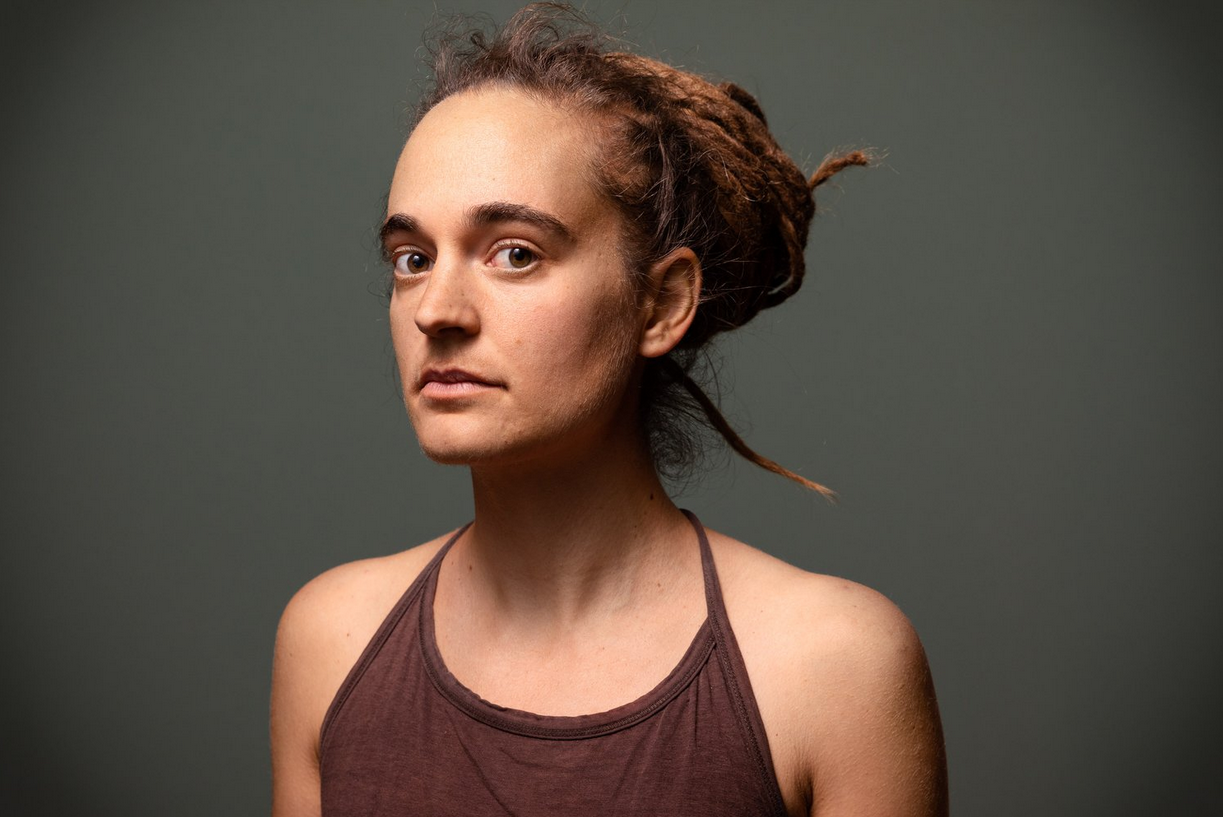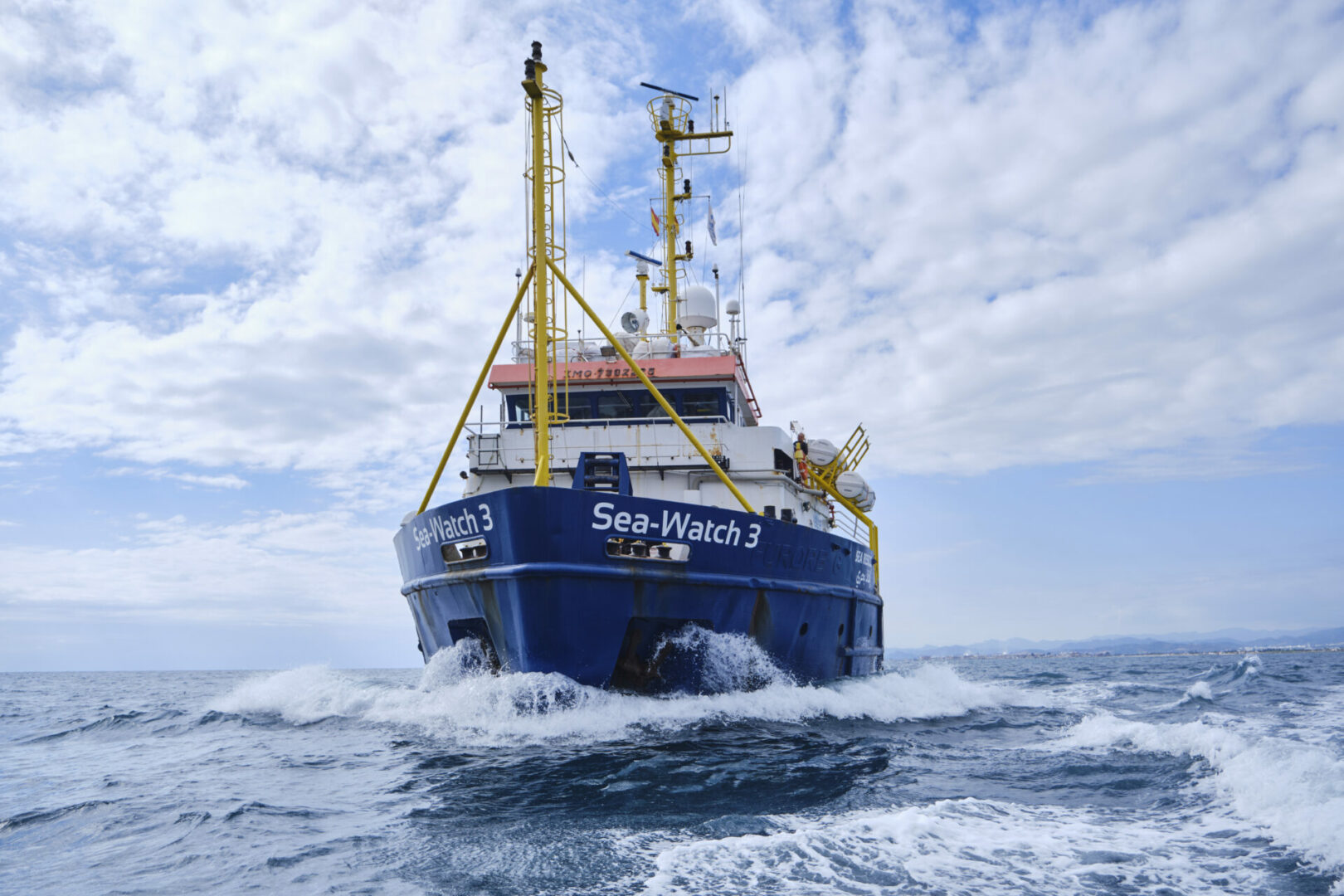"Germany and other countries have a historical responsibility for the current situation and the power structures that are in place. In terms of environmental destruction, for example, or the increasing flight from the effects of climate change. We have to face up to this responsibility."
Carola RacketeRead more:
Nationality at birth: German
Place of the fight for human rights: Mediterranean Sea
| Area | Type | From | To | Location |
|---|---|---|---|---|
| Bachelor in Nautical Science and Maritime Transport | 2007 | 2011 | Jade University of Applied Sciences, Elsfleth | |
| Nautical watch officer specialising in polar research on ships, but also with Greenpeace and on expedition ships | 2011 | 2017 | ||
| Master in Nature Conservation Management | 2015 | 2018 | Edge Hill University, Ormskirk, UK | |
| Freelance ecological campaigns with a focus on human rights & nature conservation, Antarctica, climate justice | Since 2018 |
Extinction Rebellion
Location:Reason for entry: Climate Objectives
Function / Activity: Activist
Leitmotif
Carola Rackete defied the Italian government despite the threat of imprisonment in order to protect the human rights of the refugees on board and bring them to safety. She saw it as her own responsibility to act.
How did the story become known?
Media around the world reported on the events in the Mediterranean.
When did the story become known?
2019
Prizes, Awards
- Médaille de la Ville de Paris, awarded in July 2019
- Medal of Honour of the Catalan Regional Parlament, awarded on 10 September 2019
- Globart Award 2019 for her life’s work, awarded on 20 Oktober 2019
- Karl-Küpper-Award, 2020
Own works
Rackete, Carola. The Time to Act Is Now. A call to combat environmental breakdown. Rosa-Luxemburg-Stiftung 2021. (first published in 2019 by Verlagsgruppe Droemer Knaur GmbH & Co. KG, Munich, Germany, as Handeln statt hoffen.)
Carola Rackete believes that privileged people have a responsibility to stand up for weaker people, especially those who suffer under the exploitative capitalist system.
Application of rights to all people in all countries and territories, regardless of their international position
Right to life, freedom and security
Equality before the law
Right to free movement (national and over-the-counter)
Asylum
Right to nationality
Right to social security

INTRODUCTION
In 2019, Carola Rackete defied the Italian authorities and sailed into the port of Lampedusa as captain of the ship Sea-Watch 3 to bring the 42 refugees on board to safety. She is also an environmental activist and politically active.
THE STORY
Carola Rackete was actually planting trees as part of a nature conservation project in summer 2019 when she was asked to take over the command of Sea-Watch 3 in the Mediterranean at short notice. She had previously captained Sea-Watch 2 in 2016 and coordinated rescue missions for Sea-Watch. Sea-Watch is a non-profit organisation from Berlin dedicated to rescuing refugees in the Mediterranean.
The events surrounding the Sea-Watch 3
Carola Rackete also coordinated such a rescue mission on 12 June 2019, when the rescue ship Sea-Watch 3 saved 53 people from drowning off the coast of Libya. Due to serious injuries, 11 of the refugees were allowed to set foot on the Italian mainland. The remaining 42 were banned from leaving the ship.
This means that the Sea-Watch 3 must remain in the Mediterranean with its crew off the EU’s external border.

Image 1: The Sea-Watch 3 and two lifeboats during training in the Mediterranean. Aerial view from a drone.
Captain Carola Rackete contacts various EU member states, including Italy, the Netherlands, Malta and France, and asks for a safe legal berth to bring the refugees to safety. The countries did not respond. When specific requests are again made to Italy and Malta, the sea rescuers are explicitly rejected. At the same time, an urgent application is made to the European Court of Justice in Strasbourg and rejected, as the judges see no “immediate risk of irreparable harm”. In just a few weeks, Carola Rackete becomes the face of sea rescue and the voice of refugees.
The controversial and explosive situation is being covered by numerous media outlets, with various cities showing solidarity with the rescue ship and offering to take in the refugees. However, there is no accessible EU country that would allow them to arrive and receive first aid. At the same time, Italian Interior Minister Matteo Salvini is clearly positioning himself against the reception, issuing an explicit ban on entering Italian territorial waters and insulting Carola Rackete’s demands.
As a result, the rescue ship is drifting in the Mediterranean for over two weeks without any prospect of a safe harbour or supplies.
The situation on board

Image 2: In a rescue situation similar to the one in June 2019: a boy stands on board the Sea-Watch 3 and looks out to sea. At the time of the photo, he has been waiting on board the rescue ship for over two weeks as no European country is prepared to take in the 32 people rescued.
The health situation of the injured and traumatised refugees is increasingly deteriorating. In particular, the crew can no longer take responsibility for their own mental health. The Sea-Watch crew is based on the principle that the refugees must not be deprived of their basic rights.
Carola Rackete is convinced that action must be taken and decides in agreement with the crew to head for the port of Lampedusa, despite the threat of fines and imprisonment.
On 29 June 2019, the Sea-Watch 3 enters Italian territorial waters and heads for the port of Lampedusa, despite all prohibitions by the Italian authorities.
During the final entry, an attempt by the Italian police to stop the rescue ship leads to an accident in which the police boat is rammed.
In the harbour, the crew is greeted with both cheers and insults from the local population.
When Rackete leaves the ship, she is immediately arrested by the Italian police and placed under house arrest. She is accused of aiding and abetting illegal immigration, violating Italian territorial waters and breaching the shipping regulations. She is released after three days of house arrest. In the years that followed, she had to face charges in several trials, but was eventually acquitted.
Activism and political commitment
Rackete experienced the extent of climate change at first hand through various research projects in the Arctic and Antarctic. Since then, she has been committed to environmental protection and activism in the field of ecology and climate change. For example, she is also a supporter of the climate group Extinction Rebellion. In her book “The Time to Act is Now. A call to combat environmental breakdown”, she addresses the close links and interactions between the two issues of flight and the climate crisis.
Rackete sees the climate crisis as the biggest justice crisis in the world and the exploitative capitalist economic system as the culprit. She therefore sees it as a great opportunity to stand as a candidate for the European elections in 2024 for the Left Party (Die Linke) and to establish the social and ecological goals of climate activists in the European Parliament. An attempt to unite the movements on the streets with politics. Carola Rackete’s story is not yet finished. We will certainly be hearing a lot more from her.
Author: Lucia Verhoeven
Conctace: info@buxus-stiftung.de
Images:
Header: Sandra Singh / Sea-Watch
Porträt: Roger Hofstetter
Bild 1: Jon Stone / Sea-Watch
Bild 2: Felix Weiss / Sea-Watch
Sources:
https://taz.de/Carola-Rackete-ueber-ihre-EU-Kandidatur/!5945305/
https://www.tagesschau.de/thema/rackete
https://www.die-linke.de/partei/spitzenteam-zur-europawahl/carola-rackete/
https://www.spiegel.de/thema/carola_rackete/
All links: last retrieved 31.10.2023






